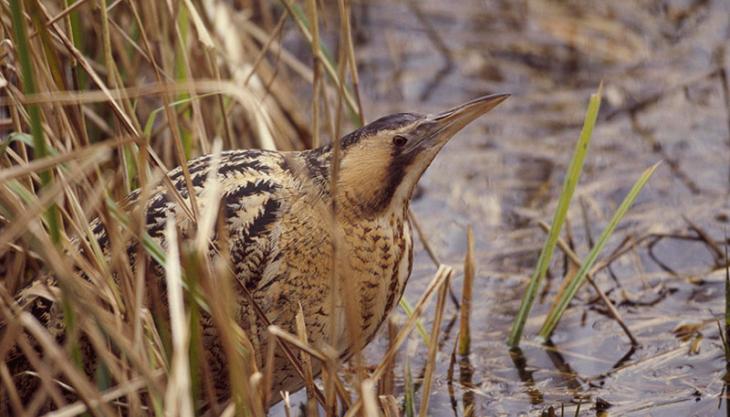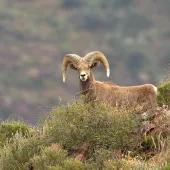Bitterns breed for first time at Attenborough

Nottinghamshire Wildlife Trust delighted that 15-year conservation effort has finally come to fruition
THE bittern, one of the rarest bird species in the UK, has bred for the first time at Attenborough Nature Reserve, near Nottingham. Last week Nottinghamshire Wildlife Trust confirmed that two bittern chicks had been spotted in reed beds at the reserve.
Believed to be the first recorded breeding success for the species in the county in modern times, the wildlife trust says it is delighted that a conservation effort stretching back more than 15 years has finally come to fruition.
Although the reserve itself was first established in 1966 when part of the original gravel workings at the site were completed and set aside to provide a protected site for wildlife, it was in 2000 that the wildlife trust designed and planted the reed bed where the birds have now nested.
It had long been hoped that bittern would one day breed at Attenborough after the reed bed became a regular wintering area for the species – with as many as seven individuals recorded at the site at one time, although until now none had gone on to mate.
This year, when a male was heard making its ‘booming’ mating call in late spring, efforts were made to give the birds every chance of breeding success by raising the water levels within the reed bed to help ensure adequate supplies of fish for the birds, and to provide additional protection from land-based predators such as foxes.
Sandy Aitken, who has been a volunteer at the reserve for more than 30 years, said: ‘To see to little fledgling bitterns poking their heads skywards through the reeds…has been especially gratifying for the many local people who have volunteered here, especially those involved in efforts to maintain the reed beds.’
Speaking on behalf of site owners CEMEX, community affairs manager Ian Southcott said: ‘This is fantastic news for Attenborough and testament to the hard work and dedication of the Nottinghamshire Wildlife Trust staff and volunteers – we wish the parents and chicks all the very best.’
The bittern is on the RSPB red list of international conservation concern and has been an important ‘flagship species’ for the restoration of reed swamp vegetation all over Europe.
The bittern population in the UK reached a low point in the late-1990s with just 11 booming males recorded in 1997 – down from 80 in the early 1950s. However, thanks to a concerted conservation effort, numbers have risen and today it is estimated that there are once again 80 booming males and some 600 birds in total in the UK.
Nottinghamshire Wildlife Trust hopes that efforts to restore former sand and gravel workings alongside the river Trent by wildlife trusts and other conservation groups will see the Trent Valley become a stronghold for the species in the future.









